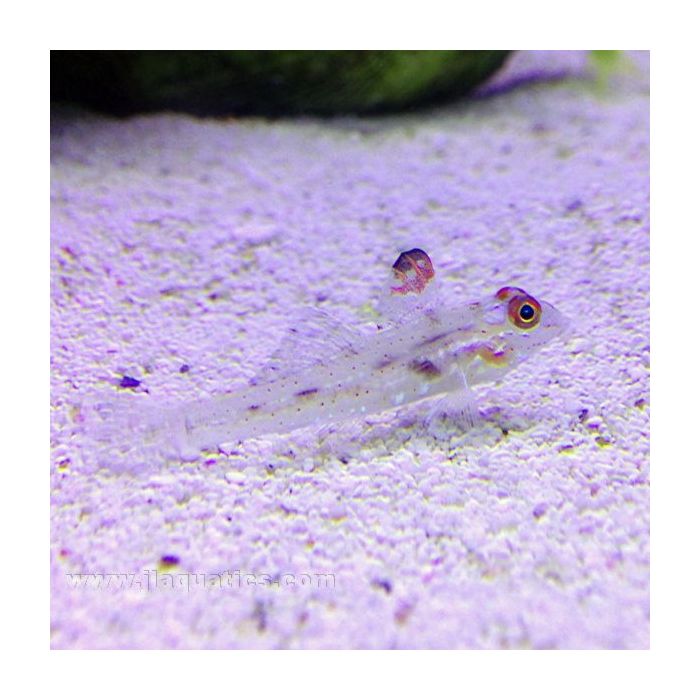Flasher Fin Goby (Asia Pacific)
The Flasher Fin goby is an inquisitive and entertaining little fish. Its body is milky white, nearly transparent, helping it blend into the sand. Its black and orange eyes and dorsal fin give it away, especially when it flicks this fin up and down. It tends to do this on a regular basis, perhaps to communicate with other fish. Its flank is covered in many tiny spots in earthy shades. Males and females are nearly visually identical; male's first dorsal fin may be taller and brighter. It grows up to 1.5 inches; we recommend an aquarium 5 gallons or larger.
Sand gobies are small, peaceful fish which spend most of their day hopping around on the substrate in an entertaining manner. A fine sand bed of at least two inches will help them feel secure.
We recommend the tank be securely covered as sand dwelling gobies may be prone to jumping from open top aquaria. They may be territorial to others of the same or similar species, however if two fish are added to a sufficiently large aquarium at the same time it may be possible to keep a pair. They are typically peaceful with all other types of fish.
Sand gobies are primarily carnivores and their diet should include plenty of high quality meaty items, marine algae, Spirulina, and frozen Mysis shrimp. It is preferable to feed more than once a day and to let some food land on the bottom of the aquarium. Frozen food is best, however in time they usually learn to eat dry foods.
As one of the largest families of fish there are near countless varieties of gobies which inhabit every different niche on the reef. They are coral safe and typically quite active and friendly with other fish. They have the ability to change sex to form pairs, although they don't always do so. Most gobies are imported from the Philippines.
Gobies are diminutive fish typically with elongated bodies, and as such we do not recommend any aggressive or large-mouthed fish to be kept with them; this includes all groupers, snappers, sweetlips, soapfish, lionfish, eels, goatfish, anglers/frogfish, leaf fish, etc.

